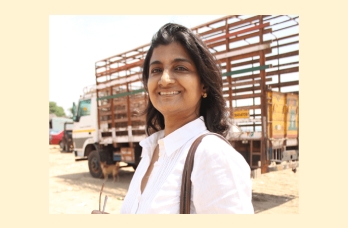Prof. Chittaranjan Hens, Prof. Karthik Vaidyanathan, and Prof. Gowtham Kurri were awarded the Prime Minister’s Early Career Research Grant initiated under the Anusandhan National Research Foundation.

IIITH Faculty receive ANRF Early Career Research Grant
EduAdvice Deccan Chronicle (Print) Deccan Chronicle Eenadu (Print) Education Times (Print) Hyderabad Mail The Hindu – Education Plus The Hindu – Education Plus (Print) Trinity Mirror (Print)
IIITH Faculty receive ANRF Early Career Research Grant

Three professors at the International Institute of Information Technology, Hyderabad have received research grants by the Anusandhan National Research Foundation (ANRF) to grow and foster a culture of research and innovation in the country. Prof. Chittaranjan Hens, Centre for Computational Natural Sciences and Bioinformatics, Prof. Karthik Vaidyanathan, Software Engineering Research Centre and Prof. Gowtham Kurri, Signal Processing and Communications Research Centre have been awarded the Prime Minister’s Early Career Research Grant initiated under the Anusandhan National Research Foundation which supports young researchers in initiating their research careers in a new institution with the help of a flexible budget and progressive initiatives for the ease of doing research. Each research grant which is meant for young researchers no older than 42 years of age provides up to 60 lakhs plus overheads for a period of 3 years.
March 2025
Viswam.AI to host conference on AI Days 2025
Hans India (Print)
SITC of Elevators for the proposed New academic block and SRIC for IIIT, Hyderabad, at Survey No. 25(P), Kancha Gachibowli (V), Serilingampally (M), Ranga Reddy District, Telangana-500032
Sub:- SITC of Elevators for the proposed New academic block and SRIC for IIIT, Hyderabad, at Survey No. 25(P), Kancha Gachibowli (V), Serilingampally (M), Ranga Reddy District, Telangana-500032. Date and Time for Receipt of Tenders: 03/06/2025 Price Bid Opening: To be shared shortly The tender should be addressed to the Registrar. Submission of Tender […]
IIIT Hyderabad is in the Band 601 – 650 in QS World University Rankings by Subject – Computer Science & Information Systems (CSIS) in March 2025.

In a survey conducted by DataQuest Best T-School, IIIT Hyderabad has been ranked No. 1 in overall (Government and Private), private and south zone categories in March 2025.

Dr. Nimmi Rangaswamy has been appointed as Mentor Professor, an honorary position, at Nayanta University in March 2025.

Dr. Nimmi Rangaswamy has been appointed as a member of Indian Journal of Gender Studies (IJGS) Editorial Advisory Board in February 2025.


